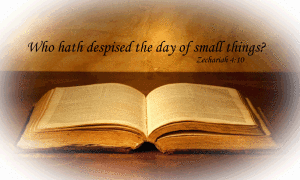
Dear Brothers and Sisters in the Lord
I sometimes ask myself ‘Why I am I doing this?’ I have no need to – there is no personal profit, and I am receiving less correspondence (more about that later). But the scripture says, ‘Whatsoever ye do in word or deed, do all in the name of the Lord Jesus, giving thanks to God and the Father by him’ (2 Cor 3:17) . So we can do the work, and leave the results to Him. After all, each of us is but a humble foot-soldier in the Lord’s army. As Darby wrote:
Lord! let us wait for Thee alone:
Our life be only this –
To serve Thee here on earth, unknown;
Then share Thy heavenly bliss
Little Flock No 411
Romans
I have been working on some of Darby’s papers on Romans. The summaries currently being produced are based on his paper Exposition of the Epistle to the Romans. I have now reached Romans 8 (hopefully in experience as well as doctrine). When completed, I want to add some extra notes from a simpler paper Outline of the Epistle to the Romans. Then further items from the Synopsis and other sources can be added.
Your Contributions, Please…
That brings me to my next point. Why should everything come from me? Add your own summaries using the ‘reply’ facility.
If you wish to post a whole article, please email it to me. It should not be a verbatim reproduction of another article already on the Web. So that is why I am keen to have correspondence.
Of course you may well put your own point of view. If I believe it to be contrary to scripture, I will tell you. If seriously erroneous, then I will have to reject it.
Darby’s Stand
John Nelson Darby made a courageous stand against sectarian Christendom. This did not earn him many friends, especially amongst the religious hierarchy.
Some of the things he contended with were:
From W G Turner, ‘John Nelson Darby’ published by Chapter Two
- Apostolic Catholicism/Pentecostalism – Edward Irving
- Oxford Movement – Edward Bouverie Pusey
- Sceptical Modernism – Francis William Newman
- Roman Catholicism – Cardinal John Henry Newman
- Heresy as to the Person of Christ – Benjamin Wills Newton
- Arminianism /Perfectionism – John Wesley
- Free Church Calvinism – Merle d’Aubigné
- Free Chruch of Scotland Rationalism – Robertson Smith
- Various ideas as to the future – annihilation, non-eternity, punishment/purgatory
To this I would add:
- Ecclesiastical Independency
- Clericalism
- Mysticism – Madame de Krudener etc.
- National churches
- Post millennialism etc.
- …
We can be thankful to God for the stand that men like Darby, Wigram, Bellat, Mackintosh etc made.
No Hope
A brother recently sent me a link to a preaching which started with the words.
‘Human beings can live for forty days without food, four days without water, and four minutes without air. But we cannot live for four seconds without hope’.
This made me think. Millions of people live their whole lives without hope. You can see it in their faces. Thank God that ‘We were were without Christ, being aliens from the commonwealth of Israel, and strangers from the covenants of promise, having no hope, and without God in the world: But now in Christ Jesus we who sometimes were far off are made nigh by the blood of Christ’ (See Eph 2:12-13).
We have been made nigh. Let us keep near our Lord and Saviour!
God’s blessings, your brother,
Sosthenes Hoadelphos





